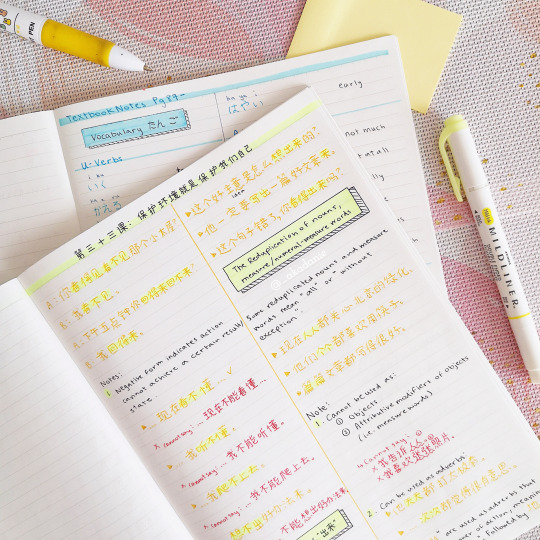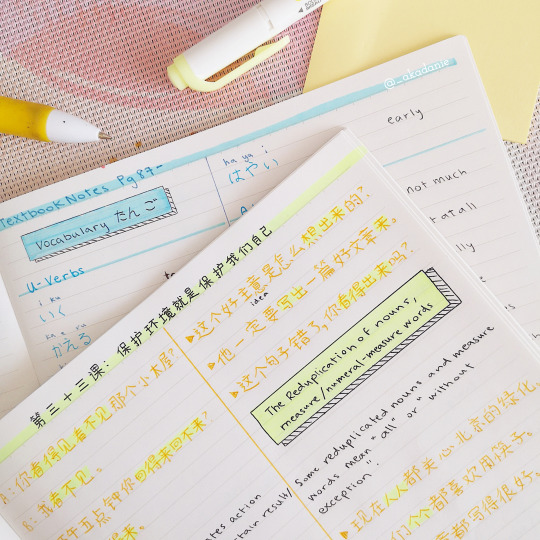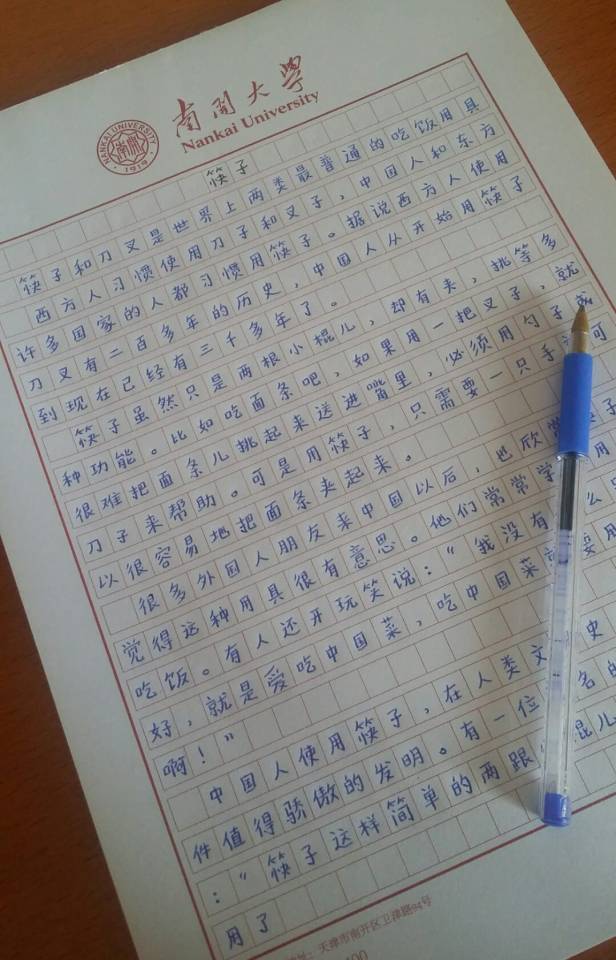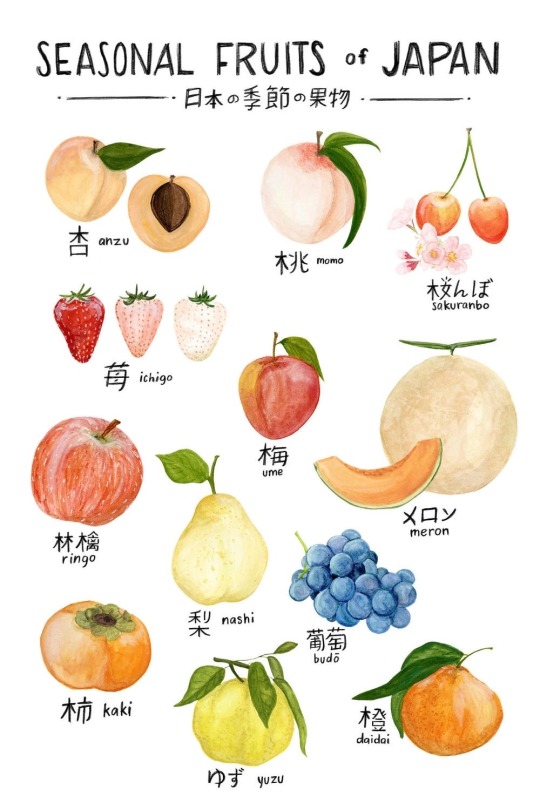langblog
12K posts
carla, 20, she/hernative: english & español / learning: 中文, 日本語, italiano & português[about me / my posts / my tags]
Don't wanna be here? Send us removal request.
Text
ULTIMATE Japanese Language Learning Resources List

Symbol Guide:
✅All levels 🛠Tool ⏫Advanced 📚Textbook 🔼Intermediate 🗞️Newspaper ⬇️Beginner 🖥️Website ⏬Absolute Beginner 🎮Interactive/Game 📱Mobile Application

HIRAGANA & KATAKANA
⏬🛠Hiragana Mnemonics Chart ⏬🛠Giant List of Mnemonics Charts ⏬🛠English to Katakana Converter ⏬🎮Kana Invaders ⏬🎮Realkana ⏬🎮Hiragana Practice ⏬🎮Katakana Practice ⏬🎮Hiragana and Katakana Practice ⏬🖥️Learn Katakana: The Ultimate Guide ⏬🖥️Learn Hiragana and Katakana on YouTube ⏬📱Learn Hiragana and Katakana ⏬📱iKana

KANJI
✅🛠Self-Study Kanji Flashcards ✅🛠Suiren ✅🛠Stroke Order ✅🛠Kanji Radicals and their Meanings ✅🛠 iKanji ✅🛠How to find the Kanji Radical ✅🖥️Kanji Damage ✅🖥️WaniKani ✅🖥️Memrise ✅🖥️Kanji Kentei ✅🖥️The Kanji Map ✅📱Skritter ⏫🖥️4-Kanji Vocabulary (Yojijukugo) 🔼📚Tobira: Gateway to Advanced Japanese ⬇️🖥️Renshuu ⬇️🖥️Nimonikku ⏬📚Kanji Look and Learn ⏬📚Kodansha Kanji Learning Course

VOCABULARY
✅🛠Language Pal Pack: Questions to Kickstart Conversation ✅🛠Suiren ✅🖥️Memrise ✅🖥️WordReference Forums ✅🎮iKnow! Japanese Core Vocabulary Decks ⏫🖥️4-Kanji Vocabulary (Yojijukugo) 🔼🖥️Japanese Onomatopoeia 🔼🛠Keigo Cheatsheet 🔼📚Tobira: Gateway to Advanced Japanese 🔼📚Common Japanese Collocations 🔼📚Speed Master Series ⬇️🖥️Renshuu ⏬🖥️6000 most used words ⏬🖥️1000 Basic Words ⏬📚Elementary School Dictionary

GRAMMAR
✅🛠All Verb Conjugations Cheatsheet ✅🖥️Tatoeba ✅🖥️JGram ✅🖥️MaggieSensei ✅🖥️Bunpro ✅📚Dictionary of Japanese Grammar and Verbs ✅📚Donna Toki, Dou Tsukau ⏫📚A Dictionary of Advanced Japanese Grammar ⏫📚Nihongo Bunkei Jiten 🔼📚A Dictionary of Intermediate Japanese Grammar 🔼📚Tobira: Gateway to Advanced Japanese ⬇️📚A Dictionary of Basic Japanese Grammar ⬇️🖥️Nihongo Resources ⬇️🖥️Renshuu ⏬🖥️TaeKim’s Guide to Japanese ⏬🖥️Learn Japanese with Erin ⏬📚All about Particles ⏬📚Genki Series ⏬📚Japanese from Zero

READING
✅🛠Japanese.io ✅🛠Read More Or Die ✅🛠Text Analysis ✅🛠Tenjin Reader ✅🖥️Satori Reader ✅🖥️Reajer ⏫🗞️NHK News ⏫🗞️Yomiuri Newspaper ⏫🗞️Nikkan Gendai ⏫🖥️ Read Manga Online 🔼🗞️High School Newspaper 🔼🗞️Kodomo Asahi (Kid’s Asahi News) 🔼🖥️Japanese Subreddits 🔼🖥️The Great ChokoChoko Library ⬇️🖥️Japanese Reading Practice For Beginners ⬇️🖥️Real World Japanese ⬇️🗞️NHK Easy News ⬇️🗞️NHK Easier

WRITING
✅🖥️Lang 8 ✅🛠All Verb Conjugations Cheatsheet ✅🛠How to write on Japanese essay paper (Genkouyoushi) ✅🛠Japanese Journal Writing Beginners to Advanced ⏫🛠Phrases for report writing

LISTENING
✅🛠Language Pal Pack: Questions to Kickstart Conversation ✅🖥️RhinoSpike ✅🖥️NHK WORLD TV ✅🖥️Documentaries About Japan You Can Watch For Free ✅🖥️Top 5 Japanese Dramas ⏫🛠Japanese Audiobooks List ⏫🛠Japanese Audiobooks 2 ⏫🖥️Bilingual News 🔼🖥️TBS News 🔼🛠Japanese Drama Subtitles 🔼🛠Japanese Drama Subtitles 2 ⬇️🗞️NHK Easy News ⬇️🗞️NHK Easier ⬇️🖥️Learn Japanese Pod ⬇️🖥️Erin’s Challenge! ⬇️🖥️Nihongo de Kurasou

SPEAKING
✅🛠Language Pal Pack: Questions to Kickstart Conversation ✅🖥️Make Language Pals ✅🖥️RhinoSpike ✅📱HelloTalk ✅🎮Rosetta Stone Japanese ✅📚Japanese Accent Dictionary ✅🛠Japanese Accent Guide

DICTIONARIES/TRANSLATION TOOLS
✅🛠Kotobank ✅🛠Tangorin ✅🛠Weblio ✅🛠Jisho.org ✅🛠ALC ✅🛠Ninjal-LWP ✅🛠WWWJDIC ✅📚Dictionary of Japanese Grammar and Verbs ✅📚Japanese Accent Dictionary ⏫📚A Dictionary of Advanced Japanese Grammar 🔼📚A Dictionary of Intermediate Japanese Grammar ⬇️📚A Dictionary of Basic Japanese Grammar ⏬📚Elementary School Dictionary ⏬📚All about Particles

JLPT
✅🖥️JLPT Website ✅🖥️TANOS ✅🖥️JLPT Study Plan ✅🖥️Last Minute Resources ✅🖥️Sample Practice Tests ✅📚Nihongo So Matome ✅📚Donna Toki, Dou Tsukau ✅📚New Kanzen Master 🔼📚Speed Master Series

SOFTWARE & APPS
✅📱Anki SRS ✅📱Japanese ✅📱HelloTalk ✅📱Skritter ✅🛠Rikaichan (Firefox) ✅🛠Rikaikun (Chrome) ✅🛠 iKanji ✅🎮Rosetta Stone Japanese

TEXTBOOKS
✅📚Nihongo So Matome ✅📚Donna Toki, Dou Tsukau ✅📚Dictionary of Japanese Grammar and Verbs ✅📚New Kanzen Master ⏫📚A Dictionary of Advanced Japanese Grammar ⏫📚Nihongo Bunkei Jiten 🔼📚A Dictionary of Intermediate Japanese Grammar 🔼📚Tobira: Gateway to Advanced Japanese ⬇️📚A Dictionary of Basic Japanese Grammar ⏬📚Elementary School Dictionary ⏬📚All about Particles ⏬📚Genki Series ⏬📚Japanese from Zero
More resources available here.
13K notes
·
View notes
Text


💛💙
Week 9: Mandarin Textbook Notes!
IG: @_akadanie
654 notes
·
View notes
Text
constant pen clicking or constant leg bouncing? studying in the morning or studying at night? physical or digital copies? highlighters or fineliners? libraries or cafes? study groups or studying alone? coffee or tea? music on or music off?
862 notes
·
View notes
Text
#me logging in after like 2 years of inactivity#eek sorry to like the 3 ppl who still follow me djwoksskdh#anyways im here bc i finally have the time to take japanese seriously and this blog always motivated me to learn :-)#im prob just gonna lurk in silence for now djwokssj#hope everyone is doing ok and is taking care of themselves during these times <3#carlatalks
12 notes
·
View notes
Note
I’m sorry that these past couple of weeks have been rough for you ): I believe in you, you are strong and can make it through anything!! Hope everything gets better soon💖
omfg im sorry i havent logged onto this blog in like 2 years but thank u sm for this message <3
0 notes
Text
十分 & 几分: Formal Modifiers
Early on one learns to qualify adjectives with 很, in fact sometimes you have to, so it doesn’t feel all that emphatic and you need some new modifiers. So there’s 非常 and 特别–but what if you want to sound a little more formal too?
十分 shífēn
十分 originally is sort of like saying 100%, ten parts! But it also has a literary meaning of “very,” “extremely,” “the most” etc.
十分宝贵 shífēn bǎoguì very precious
十分难过 shífēn nánguò very upset, badly affected
You can use it almost exactly like 非常, except not spoken in casual conversation, and it is best with two syllable adjectives. So no 十分好. (for more on rhythm in chinese An Anatomy of Chinese is has a whole decent chapter)
几分 jǐfēn
On the flip side, maybe you want a break from 有点儿儿儿(/一点): there’s 几分, a few parts! “A little bit,” “somewhat.” This is less strictly formal depending how it’s used, but again with two syllable verb/adjective gives it that literary flavor.
几分心疚 jǐ fēn xīn jiù have a bit of a guilty conscience
几分睡意 jǐ fēn shuìyì a little sleepy
more casualish uses:
你能给我几分钟吗? nǐ néng gěi wǒ jǐfēn zhōng ma? Can you give me a couple minutes?
我的牙痛好了几分 wǒ de yátòng hǎole jǐfēn My toothache is a bit better
Be mindful though that sometimes idiomatic expressions do not take to swapping things out, for example pretty sure *几分都没有 is weird. In confirming that though I did find out the scale for how well you like your steak cooked is 牛排的几分熟, heh. there’s just always more words huh ¯\_(ツ)_/¯
247 notes
·
View notes
Photo




Panjin Red Beach, China - WTF fun facts
2K notes
·
View notes
Text
polyglot problems: wanting to learn about 30 new languages all at the same time
1K notes
·
View notes
Text
Using the Subjunctive in French
(For the PDF version, click here.)
While the indicative mood is used when a statement is given or probable, the subjunctive mood is used for unlikely statements. It expresses conditions of subjectivity, uncertainty, and unreality. The subjunctive is typically found in subordinate and relative clauses.
When to use it:
1. imposition of will, of necessity on someone else
The subjunctive can be used when imposing one’s will on someone else. This is expressed through verbs of order, advice, desire, or preference.
e.g.:
Je veux que tu fasses tes devoirs. – I want you to do your homework.
Le PDG a besoin que sa secrétaire soit à la réunion. – The CEO needs his secretary to be at the meeting.
2. emotions
The subjunctive is necessary to express emotions such as fear, surprise, happiness, sadness, and annoyance in French.
e.g.:
Ils ont peur qu’il fasse froid en Norvège. – They are afraid it might be cold in Norway.
Nous sommes heureux que tu sois arrivée. – We are happy you have arrived.
3. negation of facts and opinions
When verbs in the main clause negate those in the subordinate clause, the latter require the subjunctive mood. Such verbs include douter and nier.
e.g.:
L’inspecteur doute que le restaurant soit propre. – The inspector doubts the restaurant is clean.
Il nie qu’il ait parlé avec cette femme. – He denies having talked to this woman.
EXCEPTION: When douter and nier are negative, the indicative mood is used, because they are no longer negating the subordinate clause.
e.g.:
Je ne doute pas que tu dis la vérité. – I don’t doubt that you are telling the truth.
Elle ne nie pas qu’elle a commis le crime. – She doesn’t deny having committed the crime.
The verbs penser, espérer, and croire use the subjunctive only when in negative or interrogative sentences. Affirmative sentences require the indicative.
e.g.:
Nous ne croyons pas que ce soit une erreur. – We don’t think it was a mistake.
Elle pense que l’enseignante a raison. – She thinks the teacher is right.
N’espères-tu pas que ce soit une mauvaise blague? – Don’t you hope it’s a bad joke?
NOTE: It is possible to use the indicative in the negative and interrogative forms of penser to convey certainty.
e.g.:
Il ne pense pas qu’il a entendu un bruit. – He doesn’t think he heard a noise (and is fairly certain about it).
Il ne pense pas qu’il ait entendu un bruit. – He doesn’t think he heard a noise (but isn’t sure).
4. after superlatives
Sentences with superlatives that express an opinion or evaluation take the subjunctive in the dependent clause. It is also used after the words principal, seul, unique, premier, and dernier.
e.g.:
Elle est l’enfant la plus studieuse que j’aie connue. – She is the most studious child i have ever met.
Cette pièce de théâtre est la moins intéressante que ma mère ait vue. – This play is the least interesting one that my mother has seen.
Le français est la seule langue qu’il puisse parler. – French is the only language he can speak.
However, if the speaker is confident in what they’re saying, or there is no opinion being expressed, the indicative mood is used.
e.g.:
La salle de bain est la pièce la plus petite qu’a la maison. – The bathroom is the smallest room in the house.
Valentina Terechkova est la première femme qui est allée dans l’espace. – Valentina Tereshkova is the first woman to go to space.
5. personal and impersonal expressions
Many impersonal expressions (expressions that start with il est or c’est) require the subjunctive in French. These can be divided into expressions of doubt, necessity, desirability and insistence, and fear.
e.g.:
Il est possible que nous soyons en retard. – It’s possible we might be late.
Il est nécessaire que tout le monde aille voter. – It is necessary that everyone go vote.
Concessive statements that begin with où que, quoi que, quel que, or si…que also require the subjunctive.
e.g.:
Je te promets que, où que tu sois, je te retrouverai. – I promise that, wherever you are, I will find you.
Si triste que la situation puisse paraître, tout n’est pas perdu. – As sad as the situation may seem, all is not lost.
Specific expressions always take the subjunctive:
Que je sache
Ainsi soit-il
Vive le roi
Advienne que pourra
Command sentences that begin with que require the subjunctive.
e.g.:
Qu’il vienne à mon bureau immediatement! – Let him come to my office immediately!
Qu’on m’apporte un café! – Let someone bring me a coffee!
6. relative clauses
If the noun tied the relative clause is indefinite, not yet found, or does not exist, the relative clause will require the subjunctive mood.
e.g.:
Nous avons besoin d’une personne qui soit très forte. – We need a person who is very strong.
Je veux une voiture qui puisse voler. – I want a car that can fly.
7. negative and indefinite pronouns
If a subordinate clause is preceded by ne…personne or ne…rien, or if it’s preceded by quelqu’un or quelque chose, it requires the subjunctive mood.
e.g.:
Je ne connais personne qui sache parler allemand. – I don’t know anyone that speaks German.
Il n’y a rien que tu puisses faire. – There is nothing you can do.
Il doit avoir quelque chose qui puisse servir! – There must be something that works!
8. after conjunctions
Certain conjunctions that express a type of dependence (constrait, expectation, etc.) require the use of the subjunctive, provided the subjects of the main and dependent clauses are different. It is worth noting that some conjunctions can use the ne explétif with the subjunctive.
The conjunctions can be divided into several categories:
a. to express intention and purpose
Pour que
Afin que
De sorte que
De façon que
b. to express fear and threat
De crainte que
De peur que
c. to express wait and time constraint
Jusqu’à ce que
En attendant que
Avant que
EXCEPTION: Après que is followed by the indicative mood, but the use of the subjunctive has seen a rise in popularity recently.
d. to express obstacle and restriction
Bien que
À moins que
Quoique
Encore que
Sans que
e. to express condition
À condition que
Pourvu que
Subjective verbs vs objective verbs
Verbs can be divided into “objective” and “subjective” categories. Objective verbs (constater, affirmer, penser) require the indicative mood, while subjective verbs (désirer, redouter, vouloir) take the subjunctive.
e.g.:
Je constate que personne ne m’a écouté. – I see no one has listened to me.
Je veux que vous m’aimiez. – I want you to love me.
EXCEPTION: Objective verbs can take the subjunctive in certain cases, such as:
1. in negative sentences
e.g.: Il ne croit pas que le livre soit réellement perdu. – He doesn’t think the book is really lost.
2. in interrogative sentences with an inversion
e.g.: Pensez-vous que Marie ait trompé Nicholas? – Do you think Marie cheated on Nicholas?
3. when an adjective expresses judgement
e.g.: Nous ne trouvons pas normal que les femmes soient considérées inférieures. – We do not find it normal that women are considered inferior.
How to conjugate the subjunctive in French.
285 notes
·
View notes
Text
honestly like, dabbling in languages is fun and getting to learn little interesting facts about hundreds of different languages with different cultures, history and politics is so cool, because the world is so vast and has produced so much interesting content…
but nothing compares to really learning a language and going from nothing at all, to completely understanding it properly, knowing the culture and nuances of its speakers rather than just reading one article about it, being able to actually utilise the language to its full potential with its speakers and feel almost as though you have a second life because of it
1K notes
·
View notes
Text
me, feeling confident: being a native speaker of two Romance languages, I understand pretty much all other Romance languages when written
also me, after reading one sentence in Romanian with no Romance cognates:

940 notes
·
View notes
Text
The Do’s & Don’ts of eating sushi ...
















600K notes
·
View notes
Text

↳ 19.02.05. tuesday
新年快乐!some art journaling and prep for my korean literature midterm next week~ peep the precious little 红包 my chinese teacher gave me last year!
1K notes
·
View notes



